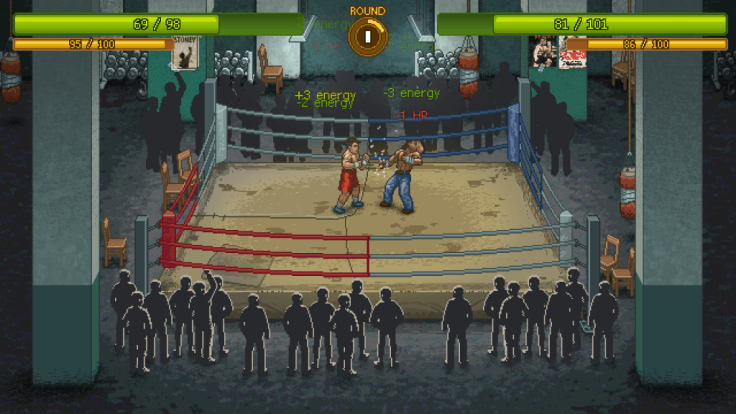'Punch Club' Is A Hit With Pirates And Players, But The 1.6M Stolen Copies 'Sucks' Says TinyBuild CEO

"Punch Club," the boxing management simulation game, has been a word-of-mouth hit for mobile and PC gamers since its release in January. Unfortunately for tinyBuild and Lazy Bear Games — the publisher and developer behind "Punch Club" — the game has been a huge hit with pirates. It has been pirated over 1.6 million times. That rampant piracy can have devastating effects for the industry and gamers alike, Alex Nichiporchik, tinyBuild CEO, said in an interview with International Business Times.
The piracy numbers were revealed in a blog post published Monday by tinyBuild. The publisher used code within the game to determine which players purchased a copy of "Punch Club" and who was pirating the game. In terms of sales, after accounting for users installing the game on additional devices, 72.9 percent of the copies were sold for use on PC with 27.1 percent of sales from Android and iOS users. The piracy numbers had a similar breakdown with PC, Mac and Linux accounting for 68.9 percent of all pirated copies. "Punch Club" was downloaded 1.137 million times across all computer platforms.
"We all know piracy is huge, it's just shocking to see it in real numbers. It really f---ing sucks," Nichiporchik said.
One potential solution would be to require an always-on Internet connection — where a user would need to login and have a verified copy — when playing a game, but that has its own set of challenges. "The obvious business logic here is to try and somehow restrict access to the game, make it harder to play without an online connection," Nichiporchik said. "We all know where that leads ... I don't want to cripple the user experience of our fans to offset piracy."
This is not tinyBuild's first brush with piracy. In an attempt to counteract piracy, tinyBuild intentionally leaked its first game, "No Time to Explain" on the Pirate Bay. "You can’t really stop piracy, all you can do is make it work for you and/or provide something that people actually want to pay for," Nichiporchik said to TorrentFreak at the time.
The game had a unique twist: all the characters became pirates. It was a way to control the situation while raising awareness of "No Time to Explain." The gaming community took to social media to praise tinyBuild and many piraters purchased the full version of the game.
There are other ramifications for piracy as publishers attempt to make money on a small pool of sales. "I believe the indirect effects are hugely negative for the industry," Nichiporchik said. "Companies need to start making more money per sold copy and this is where you have all of these overpriced season passes, premium subscriptions to full-priced games, etc. As a gamer, I hate those propositions."
For the Amsterdam and Seattle based tinyBuild, with its staff of three employees, and Russia-based Lazy Bear Games, just two developers, the success of "Punch Club" keeps people employed while paving the way for work on a new game. To avoid potential piracy solutions that could alienate gamers, Nichiporchik is focusing on multiplayer and console titles. Multiplayer titles, such as tinyBuild's "SpeedRunners," had a much lower piracy rate than single player titles, according to Nichiporchik.
"What it means for us is more focus on consoles; this year we're gearing up to release a dozen console titles on PS4, Xbox One, and Wii U. What we are aiming for is launching games across as many platforms as possible. It creates a snowball effect for our marketing efforts, and helps offset the piracy issue," Nichiporchik said.
© Copyright IBTimes 2024. All rights reserved.






















